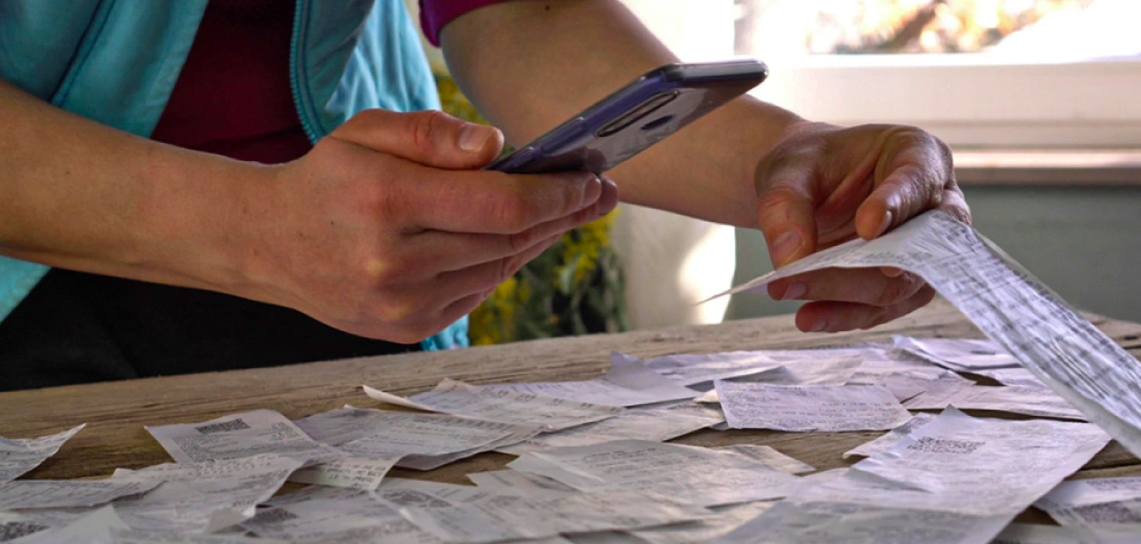With locked VAT declarations, the Digital Customer Registry, the Digital Dispatch Note, and restrictions on inflated expenses, businesses and self-employed professionals will now operate under continuous digital supervision, with automated cross-checks and limited ability to interfere with their tax obligations.
The transition to this new system leaves no room for fictitious transactions, inflated expenses, or revenue concealment, as the tax authorities will now have immediate and complete access to economic activities in real-time.
1. Locked VAT Declarations: The End of Discrepancies
Until last year, businesses could report revenues and expenses with discrepancies of up to 30% from actual figures. This allowed manipulation of VAT declarations, as companies could lower their profits by reporting inflated expenses or hiding revenues.
From January 2025, VAT declarations must be submitted exclusively via myDATA, with no room for intervention. The discrepancies that existed until last year have been eliminated:
- From October 2024, discrepancies for revenues were zeroed, and the limit for expenses was reduced to 5%.
- From January 1, 2025, it will be mandatory for declared data to match exactly with the electronic myDATA records.
This means that anything entered in myDATA will automatically be transferred to VAT declarations. Any deviation will trigger an alert in the AADE system and prompt audits. The implementation of this measure is expected to drastically reduce tax evasion, as businesses will no longer be able to manipulate figures in their tax declarations.
2. Digital Customer Registry: Real-Time Customer Recording
Issuing receipts by businesses remains one of the biggest challenges for tax authorities. Through the Digital Customer Registry, the AADE will now have the ability to monitor the flow of customers and transactions in real time.
This new system functions as an electronic customer book, where businesses will be required to record:
- The number of customers served each day.
- Details of each customer, including their VAT number.
- The receipt details issued.
Cross-referencing these data with myDATA and tax declarations will quickly identify violations, such as failure to issue receipts or underpricing services.
Initially, the obligation to maintain a Digital Customer Registry applies to sectors with high levels of tax evasion, such as:
- Car repair shops.
- Car rental companies.
- Parking lots.
- Car wash services.
Starting in January 2025, the Digital Customer Registry became mandatory, and by the end of the year, it will expand to other sectors.
3. Digital Dispatch Note: Full Tracking of Goods Movement
One of the most common tax evasion practices is failing to record the movement of goods. With the Digital Dispatch Note, the AADE gains control over this critical area.
From 2025, any business that moves products will be required to issue and electronically transmit the Digital Dispatch Note through myDATA.
Implementation Timeline:
- April 1, 2025: Mandatory for businesses with a turnover exceeding €200,000 and certain sectors such as:
- Pharmaceutical and medical products.
- Energy products.
- Building materials.
- Olive oil trade.
- October 1, 2025: Mandatory for all businesses, regardless of sector or turnover.
In addition to tracking goods shipments, the system will allow the cross-referencing of movements, transshipment, and final deliveries, creating an electronic trace for every product moved.
Businesses that do not comply with the new process will face hefty fines:
- €5,000 for businesses using the single-entry accounting system.
- €10,000 for businesses using the double-entry accounting system.
4. Significant Changes to Form E3
The new E3 tax form introduces significant changes, limiting the excessive expenses that were previously reported to reduce taxable profits. It includes pre-filled codes for revenues and expenses, which are not locked, but starting in 2025, discrepancies will be strictly monitored.
The AADE is modernizing inspections, automating processes, and ensuring that tax compliance becomes the rule, not the exception.
A New Era of Digital Tax Compliance
The implementation of these measures ushers in a new era of full transparency and intense checks:
- Tax declarations are locked and cannot be altered.
- Transactions are monitored in real time, reducing the chances of tax evasion.
- The movement of goods is digitally recorded, preventing the black market and smuggling.
Ask me anything
Explore related questions





